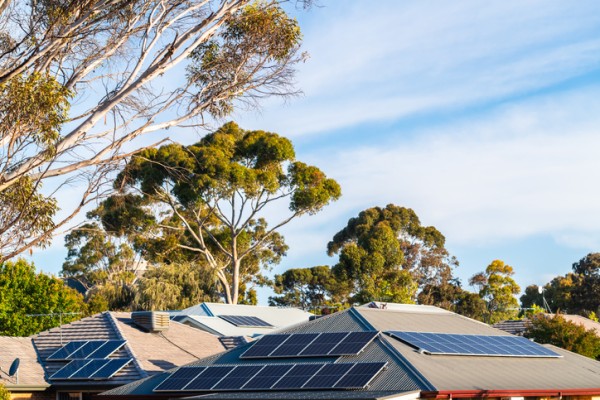Sharing power could boost solar returns, research finds
Australian researchers have found that households with solar panels could boost their returns by selling surplus power directly to their neighbours.
A University of South Australia (UniSA) and Deakin University study compared different solar energy models, including peer-to-peer (P2P) energy sharing, battery storage and traditional grid exports. using real data from a 10kW solar home in Geelong, Victoria, researchers modelled energy generation and trading over 12 months.
ADVERTISEMENT
UniSA researcher and lead author Dr Kevin Wang says the findings show that P2P energy sharing delivers significant benefits compared to traditional grid arrangements, particularly when feed-in tariffs are low.
“In Victoria, the feed-in tariffs are less than five cents per kilowatt hour, while the retail price is around 28 cents. Selling surplus PV energy directly to neighbours at a mutually agreed price in between can be far more profitable for solar households and still cheaper for buyers,” he says.
The study found that while batteries increased in self-consumption, their high upfront costs often cancelled out financial gains. By contrast, P2P sharing cut participating neighbours’ grid consumption by more than 30%. The most profitable scenario combined P2Ptrading with a mid-sized battery, which delivered the shortest payback period.
Deakin University co-author Professor Chunlu Liu says the study highlights a trade-off between battery use and community sharing.
“When batteries are used, they benefit the solar owner by reducing their grid reliance, but this can limit the amount of energy shared with neighbours because they are fully charged before any surplus energy is shared. The challenge is to find a balance that works for everyone,” Chunlu says.
With almost 40% of Australian homes now fitted with solar, researchers say P2P models could ease pressure on the grid while improving household economics. The team hopes their work will inform policy and investment decisions as the energy sector transitions to decentralised, low-carbon systems.
-
ADVERTISEMENT
-
ADVERTISEMENT


